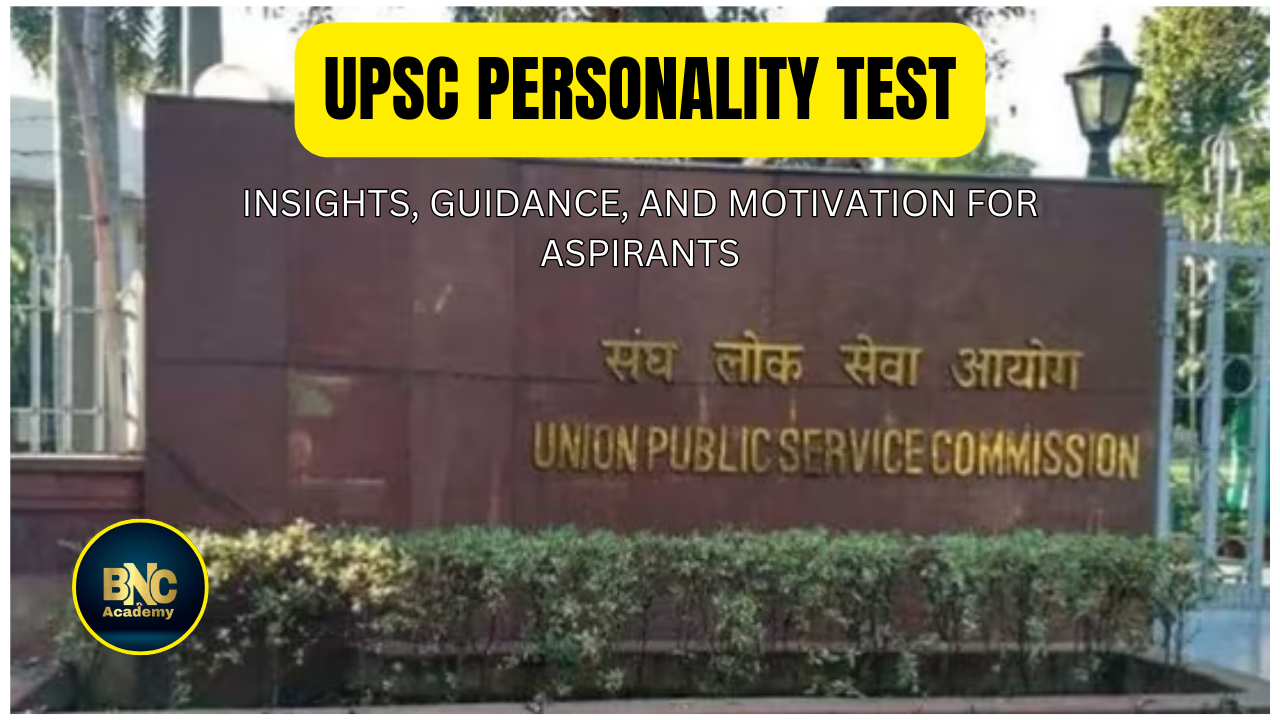
The UPSC Personality Test, commonly known as the interview, is the final stage of the Civil Services Examination. Unlike the preliminary and mains stages, which focus on factual knowledge and analytical ability, the personality test evaluates a candidate’s confidence, presence of mind, and ability to handle complex discussions. The board members assess aspirants based on their opinions, ethical grounding, and decision-making skills.
The following analysis is based on a recent UPSC interview conducted on January 21, 2025, under the board chaired by (Retd) Lt Gen Raj Shukla sir. The questions were highly opinion-based, requiring logical reasoning, awareness of contemporary issues, and a balanced perspective. This article dissects the interview, offering insights into how aspirants can prepare for similar questions and refine their approach.
Understanding the Interview Structure
The interview lasted approximately 25–30 minutes, and the board maintained a cordial atmosphere. The questions revolved around governance, taxation, economy, ethics, social issues, and international relations. The candidate’s academic background in Electrical and Electronics Engineering (EEE) and Sociology as an optional subject shaped the questions.
Key Takeaways from the Interview
1. Taxation and Economic Policies
Taxation emerged as a dominant theme in this interview. The chairman initiated the discussion with a provocative statement:
“Nobody likes to pay taxes. Should we do away with the Income Tax Department altogether?”
How to Approach Such a Question:
- Acknowledge the public sentiment regarding taxation instead of outright rejecting or accepting the idea.
- Emphasize the role of taxes in nation-building and funding public services.
- Discuss global examples where tax reforms have helped increase compliance without abolishing taxation.
2. Faceless Assessment and Human Interface in Taxation
With the introduction of faceless tax assessments in India, the candidate was asked:
“What has the faceless assessment done in this regard?”
Response Strategy:
- Highlight how faceless assessments have reduced corruption and discretion in tax collection.
- Mention the concerns about a lack of personal accountability and the necessity of a balanced approach.
- Discuss the feasibility of a hybrid model combining automation with human intervention.
3. Direct vs. Indirect Taxes
A thought-provoking question was raised about the dual taxation system:
“Why have both direct and indirect taxes? Shouldn’t we do away with one of the two?”
Balanced Perspective:
- Direct taxes (income tax, corporate tax) ensure progressive taxation, where the wealthy contribute more.
- Indirect taxes (GST, excise duty) provide revenue from consumption, covering a broader base.
- Eliminating one would create revenue deficits and distort economic balance.
4. Taxation on Specific Groups: Farmers and Sportspersons
“Sportspersons who bring laurels to the country still have to pay taxes. Is it fair?”
- Acknowledge the sentiment but highlight that taxation is universal and necessary for economic equity.
- Discuss possible incentives for sportspersons, such as tax rebates or special provisions.
“Why not tax farmers? What’s the issue?”
- Clarify the distinction between large agribusinesses and small farmers.
- Discuss the historical and economic rationale behind tax exemptions for farmers.
- Suggest alternative ways to ensure tax justice without burdening marginal farmers.
Personal and Administrative Perspectives
1. The Candidate’s Background and Career Choice
“Why IAS when you can do the same job on deputation?”
- Stress the holistic administrative role of an IAS officer.
- Highlight leadership, policymaking, and execution responsibilities that go beyond a deputation role.
“Why shift from EEE to Sociology as an optional?”
- Explain the interdisciplinary relevance and personal interest.
- Demonstrate how Sociology aids in governance, policymaking, and understanding societal challenges.
2. Handling Criticism and Online Trolling
“How do you handle criticism?”
- Differentiate constructive criticism from baseless trolling.
- Mention strategies like emotional intelligence, patience, and professional handling.
“Recently, Australia banned children from social media. Should India follow suit?”
- Balance the need for digital literacy and child protection.
- Discuss alternative measures like parental controls, age-appropriate content, and awareness campaigns.
International and Economic Affairs
1. Global Taxation and Economic Comparisons
“What is the tax-to-GDP ratio of developed countries vs. India?”
- Compare India’s tax-to-GDP ratio (~10-12%) with developed nations (~30-40%).
- Discuss factors like informal economy, lower per capita income, and tax compliance.
“What is QUAD?”
- Explain the Quadrilateral Security Dialogue (QUAD) as a strategic alliance between India, the US, Japan, and Australia.
- Highlight its significance in Indo-Pacific security and trade.
“What is OECD? Is India a member?”
- Define the Organisation for Economic Co-operation and Development (OECD) as an international economic organization.
- Clarify that India is not a full member but participates as a key partner.
Final Thoughts: The Chairman’s Closing Statement
The chairman concluded with a concern about tax evasion:
“Corporations evade taxes while the salaried class has no escape. What’s your take?”
This question requires a nuanced approach:
- Acknowledge the issue of tax avoidance by corporations through loopholes.
- Advocate for stronger regulations and transparent policies.
- Highlight the role of technology in tracking tax compliance.
How Aspirants Can Use This Analysis for Their Preparation
- Develop a Balanced Perspective: Avoid extreme opinions and aim for well-reasoned answers.
- Stay Updated with Current Affairs: Questions often stem from contemporary economic, social, and governance issues.
- Practice mock interviews: Simulate UPSC board discussions with mentors or peers.
- Refine Answer Delivery: Speak with clarity, confidence, and logical coherence.
- Ethical and policy-oriented thinking: Align responses with constitutional values and policy implications.
A Test of Personality, Not Just Knowledge
The UPSC Personality Test is not about testing your memory but your ability to think, reason, and articulate well-structured opinions. The key to success lies in maintaining composure, demonstrating depth of thought, and presenting balanced viewpoints. As aspirants, focus on clarity, ethical reasoning, and a solution-oriented approach. Remember, the goal is not to impress but to express with conviction and integrity.
